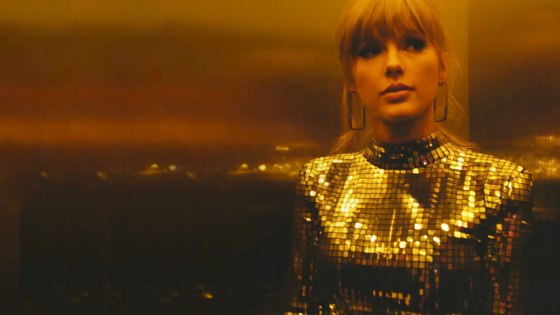Since the end of MTV as “music television,” pop music has scrambled to find ways to make new music releases stand out, whether dropping singles tied to TV episodes or hyping YouTube releases. For the true superstars, a new trend is tying your newest song or album to a Netflix documentary. Taylor Swift is following this model with “Miss Americana,” which just so happens to arrive alongside a new single, “Only The Young,” from her latest album, “Lover.”
“Miss Americana” is a film whose purpose is not just to market an album, but to introduce Swift’s reinvention of herself.
Swift’s documentary recalls Beyoncé’s similar movie in 2019. But “Miss Americana” is more properly compared to Madonna’s “Truth or Dare,” which reintroduced an artist during the height of a four-decade career driven by constantly mutating personas. “Miss Americana” is a film whose purpose is not just to market an album, but also to introduce Swift’s reinvention of herself.
Having turned 30 in 2019, Swift has spent a full half of her life in the public eye. A child songwriting prodigy, her record-breaking career could already fill hagiographies, which doubtlessly will be written a half-century from now when she reaches the same age as Cher. “Miss Americana,” at a trim 85 minutes, spends the first half recapping the highlight reel for those just tuning into the Taylor Swift story. But director Lana Wilson recasts these events as a lead-up to the overall message: There’s a new Taylor Swift in town, one who is finally willing to follow her own advice and “speak now.”
Swift began her career as the wide-eyed ingenue: a lovelorn teen, a victim of mean girls, forever in sneakers on the bleachers. The image stuck in large part because she presents as the ideal American princess. But the documentary revisits the real moment that defined Taylor for the decade, for good and ill: the incident where Kanye West barged on stage as she accepted her first MTV award and declared, in so many words, she didn’t deserve it.
Swift calls this moment “formative.” In her telling, it drove her to be a workaholic and a perfectionist. She fails to note that, from then on, her managers sold her as the slightly victimized (white) heroine. Her move from country to pop on her 2014 album “1989” saw her cut off her blonde princess curls and put away the bright red lipstick for something dark and sultrier. But her music still focused in some way or another on crushes and bullies. In 2017, on “Reputation,” Swift attempted to declare the old Taylor “dead.” But without anything to replace the “old Taylor” in the public eye, reports of her demise were premature. Even as recently as the Scooter Braun episode last summer, where Swift learned all her old masters were now under the control of a record executive who did not have her best interests at heart, she was still bringing up the ghost of West’s behavior in explaining the issue to the public.
“Miss Americana” is an attempt to once again kill off the old Taylor, this time with reports not of death but of maturation. To that end, Swift does an impressive amount of self-reflection. She admits to years of disordered eating and discusses how the industry practically requires artists to be “intrinsically insecure.” (At one point, she sees herself in playback on camera and remarks she has a “really slappable face,” just before declaring she’s rooting out her own internalized misogyny.) But the film’s main message is one of loneliness. Swift has spent clawing her way to the top of an industry controlled by white men decades older than she is. And for years, those old white men have told her she could sing her own songs, but she couldn’t use her own voice.
The film is filled with moments that illustrate how little she has in common with those she works with. (In one scene, she frets about turning 29, only to get a patronizing “I remember those days” from her producer, Joel Little.) But the real heart of the doc is a meeting with record executives in which Swift fights for the right to make a political statement during the 2018 midterms. Up against a wall of old industry men, and her own father, she was confronted with Mesozoic-era rebuttals: “Did Bob Hope do it? Did Bing Crosby do it?” Even her mother is appalled at these flaccid arguments. One can see why Swift rebels.
But Taylor Swift’s awakening never goes as deep as it could. Swift says the country music world teaches artists not to “push politics on people,” without exploring how not caring about politics is a privilege, or that country music has a fanbase of music that dogwhistles itself to be “whites only.” The documentary brings up the Dixie Chicks as an example of female country artists who suffered for their political stances. But Taylor long ago crossed into the realm of pop, so the specter of playing to half empty arenas suggests someone on her team believes the whispers that her fanbase is partially dependent on white supremacists. Swift’s refusal to acknowledge the encoded racial aspects of the Kanye West incident, or the later backlash, is similarly telling. Here is a new, outspoken Taylor, woke and ready to be an adult. But her maturation only goes so far.
Despite these limitations, Swift’s reinvention shows a real awareness of how this industry chews women like her up and spits them out. She’s right that female artists must constantly reinvent themselves in order to stay “shiny and new” for a public that nonetheless does not want to be challenged by those changes. But her latest transformation also stops short of challenging her audience. Still, her willingness to document the intimate process of discovering her voice makes “Miss Americana” a worthwhile portrait to check out, even if you don’t download the single it’s selling.


